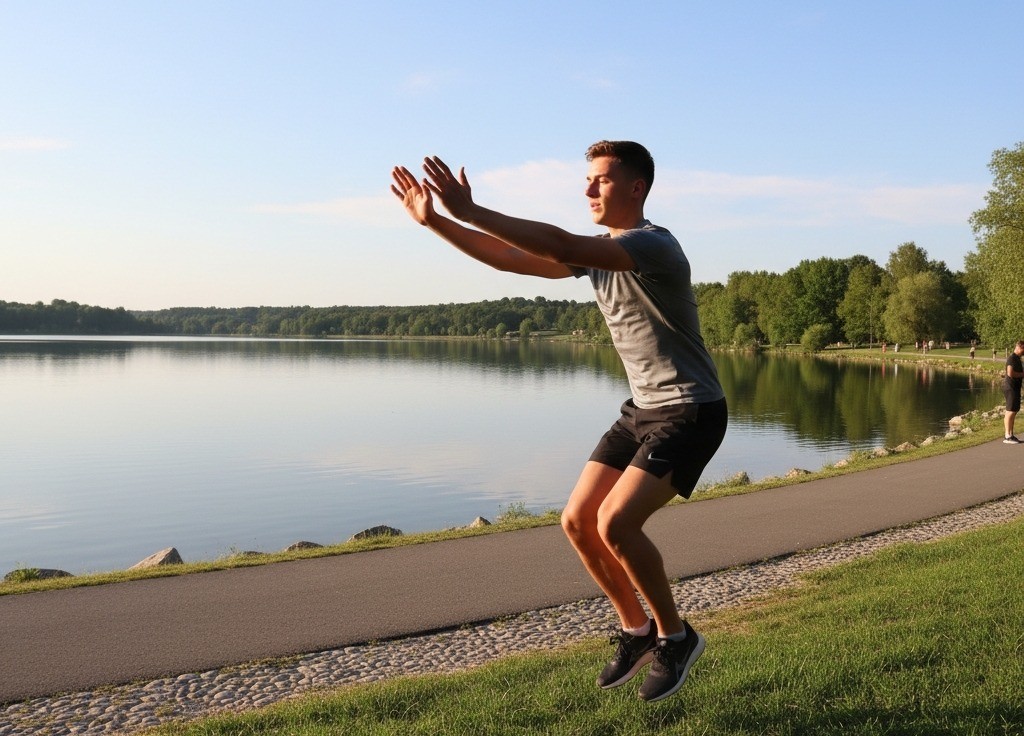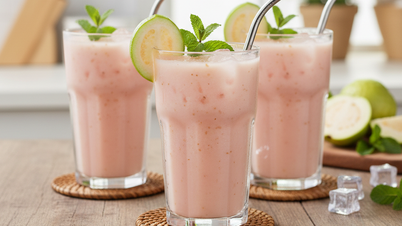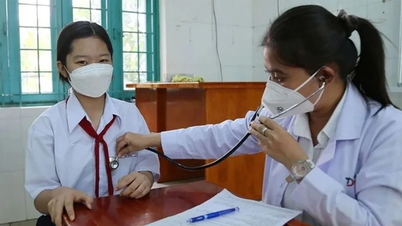According to Associate Professor, Doctor, Doctor Nguyen Xuan Ninh - Deputy Director of the Vietnam Institute of Applied Medicine, regular exercise is an effective method to help improve overall health, support liver function, enhance circulation, respiration, excretion and digestion. These are also important systems in the process of eliminating toxins, including alcohol from beer and wine.
Some studies have shown that after drinking alcohol, light exercise combined with drinking plenty of water can help the body eliminate alcohol faster. In particular, moderate-intensity cardio exercises (running, jumping, etc.) lasting 45-60 minutes can stimulate metabolism, helping the liver work more effectively.
However, Dr. Nguyen Xuan Ninh emphasized: "Do not mistakenly think that exercise can completely 'erase' the harmful effects of alcohol. Exercise is not a passport to drink alcohol freely."

Many people believe that regular exercise can reduce the harmful effects of alcohol.
How to practice properly?
Experts recommend that to exercise effectively and without causing adverse effects, it is necessary to combine it with a scientific nutritional regimen, suitable for physical condition, age and personal goals.
- Before exercise: Eat a light snack of easily digestible, carbohydrate-rich foods to avoid exhaustion.
- During exercise: Drink enough water to maintain performance and stabilize health.
- After exercise: Supplement with proper nutrition to restore energy and support muscle building.
In particular, people with underlying medical conditions (bones, joints, cardiovascular disease, blood pressure, liver disease...) should consult a medical professional before choosing an exercise regimen and nutritional menu.
How does alcohol destroy the body?
Regular alcohol consumption can cause a series of serious health consequences:
Liver: Alcohol is the main "burden" for the liver - the main organ in metabolism and detoxification. Long-term drinking causes fatty liver, cirrhosis, and even liver cancer.
Nervous system: Damages white matter and myelin sheath in the brain, causing memory loss, psychosis, numbness in limbs, and behavioral disorders.
Bones and joints: Alcohol promotes the process of joint degeneration, even in some cases requiring joint replacement due to serious damage.
Digestive: Causes gastritis, colitis, acute pancreatitis and reflux syndrome.
Cardiovascular: Just 1.1 liters of beer can increase blood pressure by 2.4 mmHg; regular drinkers have a 7 mmHg higher risk than non-drinkers.
Weight gain: A 350ml can of beer contains about 150 calories. These "empty" calories accumulate over time, causing uncontrolled weight gain.
More importantly, when alcohol enters the body, the organs are forced to "concentrate" on processing the alcohol, disrupting the metabolism process - a key factor in maintaining health.
Exercise is good but not a "cure" for alcohol
It is clear that exercise has a myriad of health benefits, from improving metabolism to boosting immunity. However, this does not mean that the body will “neutralize” all the harmful effects of alcohol just by exercising.
Associate Professor, Doctor, Physician Nguyen Xuan Ninh emphasized: "Exercise is for health, not an excuse to drink alcohol uncontrollably."
To protect your health, maintain a healthy lifestyle: eat in moderation, exercise regularly, and limit alcohol as much as possible. Exercise cannot be a “shield” if you are actively introducing toxins into your body every day.
Source: https://baolaocai.vn/tap-the-duc-co-giai-doc-duoc-ruou-bia-post881718.html




![[Photo] Binh Trieu 1 Bridge has been completed, raised by 1.1m, and will open to traffic at the end of November.](https://vphoto.vietnam.vn/thumb/1200x675/vietnam/resource/IMAGE/2025/10/2/a6549e2a3b5848a1ba76a1ded6141fae)

























































































Comment (0)